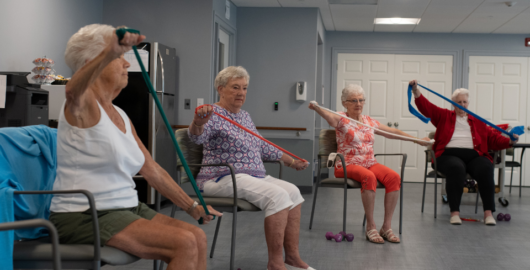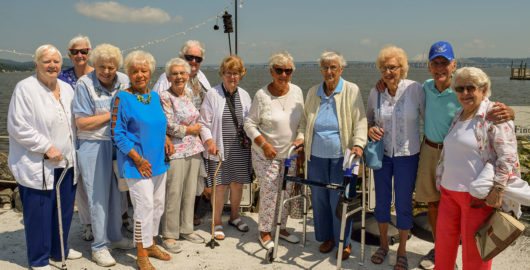Thanks to the ongoing COVID-19 pandemic, cold and flu season feels even riskier than usual. With cold weather driving everyone indoors, diseases like the flu, gastrointestinal illness, and COVID-19 can easily spread and cause dangerous health complications.
Fear of becoming sick can also spill over into everyday life and make this time of year difficult. Preventative measures that seem necessary to one person might seem excessive to another.
But avoiding infectious diseases doesn’t need to be difficult – or controversial. There are a few simple and easy-to-remember steps we can all take to protect ourselves and the people around us. By following these basic rules, we can replace anxiety with confidence and live each day safer.
Wash your hands as often as possible
Using the bathroom. Driving. Entering or exiting a building. Eating or drinking. These are all times when you should always wash your hands! Proper handwashing has been shown to reduce the spread of some communicable diseases by almost 60%. Use soap and water to wash your hands for at least 20 seconds at a time. Be sure to wash your fingertips and under/around your fingernails, as bacteria often gathers in these areas.
Alcohol-based hand sanitizers are also recommended. After all, a bathroom isn’t always readily available. Keep hand sanitizers purchased from reputable sellers in your car or purse. However often you think you should wash your hands, wash them more!
Wear a mask.
The Centers for Disease Control & Prevention (CDC) – a key office of the Trump Administration’s Health Department – strongly recommends that “people wear masks in public settings, like on public and mass transportation, at events and gatherings, and anywhere they will be around other people.”
Simply put, this is an easy, harmless and effective way to protect both yourself and the people around you. The fact is that some people can be carrying a contagious virus before they develop symptoms. And sometimes people go out in public while experiencing symptoms. For your sake, a mask protects against airborne germs that you can’t see. And for the sake of others, it protects them in case you are in the early stages of illness.
In a time of great uncertainty, simply wearing a mask can make a world of difference.
Cough and sneeze into your arm — not your hands!
When you’re not wearing a mask (because you are at home or by yourself), remember good old-fashioned cough etiquette. Every time we cough or sneeze, we push invisible droplets out of our mouth and nose into the world around us. These droplets can contain the infections that cause many viruses and flus. If you cover your mouth with your hand, those droplets will stick to your hand and spread to everything you touch! By covering your mouth with the inside of your elbow, you are isolating those droplets onto a part of your body that rarely touches other people and surfaces.
Clean devices that you use frequently, such as cell phones, canes and walkers.
Germs are all around us. It is inevitable that we will come in contact with them, especially on our hands. Even if you wash your hands often, it is likely that you will pick up germs on your hands throughout the day. And where do these germs end up? Naturally, they end up on the items we touch the most.
By frequently wiping down surfaces and commonly used items like cell phones, steering wheels, door handles, canes and walkers, we can combat these germs and make sure they don’t end up back on our hands. Different items require different cleaning methods, so just be careful to research the best methods first.
Don’t visit public places, especially healthcare facilities, if you might be sick or could have been exposed.
It is important not to let fear of getting sick control our lives. With that said, there are times when staying home is the best course of action. If you experience any symptoms like fever, coughing, aches, shortness of breath, vomiting, or diarrhea, don’t go to work or other public places.
In particular, wait to visit friends or family in hospitals or retirement homes. The same is true if you have spent time in close proximity to someone who feels sick. Once an infectious disease is introduced into a healthcare facility, it becomes far more challenging to prevent its spread to patients and residents. We owe it to our loved ones not to enter the facility in the first place!
Pay attention to the status of COVID-19 where you live and travel.
Is your community experiencing higher-than-usual levels of COVID-19 spread? That means you are more likely than usual to catch the virus from your neighbors – or unwittingly pass it on. On the other hand, if your neighborhood has very few new cases then you can feel good about spending time in your community.
The same is true when you travel. Many states, including New Jersey, rely on a travel advisory list to update the public about parts of the country with high rates of COVID-19 spread. If you arrive in New Jersey after spending time in a “hot state,” it is wise to wait 14 days before visiting with others. In fact, many health care facilities are prohibited from allowing you to enter until those 14 days have passed.
Although it may seem inconvenient, it is much better than unknowingly infecting your loved ones or more vulnerable adults.
We can be good neighbors and also take care of ourselves by following these steps and cooperating with local leaders. By doing so, we can look forward together to a brighter year ahead.




